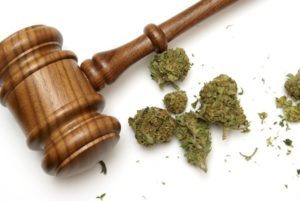 On November 21, 2017, a three-judge appellate panel decided the Camden County Superior Court case of State v. Hyland. The principle issue under N.J.S.A 2C:44-7 was whether the State has the authority to appeal the sentencing of a defendant to special Drug Court probation under N.J.S.A. 2C:35-14. Monmouth County’s own Judge Vernoia delivered the opinion of the Court. In relevant and part, the Court held:
On November 21, 2017, a three-judge appellate panel decided the Camden County Superior Court case of State v. Hyland. The principle issue under N.J.S.A 2C:44-7 was whether the State has the authority to appeal the sentencing of a defendant to special Drug Court probation under N.J.S.A. 2C:35-14. Monmouth County’s own Judge Vernoia delivered the opinion of the Court. In relevant and part, the Court held:
We next address the State’s claim that N.J.S.A. 2C:44-1(f)(2) expressly authorizes its appeal of defendant’s noncustodial probationary sentence. The statute provides that “if the court imposes a non-custodial or probationary sentence upon conviction for a crime of the first or second degree, such sentence shall not become final for 10 days to permit the appeal of such sentence by the prosecution.”
In interpreting N.J.S.A. 2C:44-1(f)(2), our “overriding goal must be to determine the Legislature’s intent.” A statute’s ‘words and phrases shall be read and construed within their context’ and ‘given their generally accepted meaning. To that end, ‘statutes must be read in their entirety; each part or section should be construed relating to every other part or section to provide a harmonious whole.’
Applying these principles, we first consider N.J.S.A. 2C:44-1(f)(2) within the context of the other provisions of N.J.S.A. 2C:44-1. N.J.S.A. 2C:44-1(d) creates a presumption that first and second-degree offenders will be sentenced to incarceration. The statute mandates that a court “deal with” a defendant convicted of a first or second-degree offense by imposing “a sentence of imprisonment.” The presumption of imprisonment, however, may be overcome. Under N.J.S.A. 44-1(d), a first or second-degree offender may be given a non-custodial or probationary sentence, if “having regard to the character and condition of the defendant, the court is of the opinion that imprisonment would be a serious injustice which overrides the need to deter such conduct by others.”
The presumption of incarceration for first and second-degree offenders is rarely overcome. The circumstances permitting a finding that there is a “serious injustice” overcoming the presumption of imprisonment “are extremely narrow” and “should be applied only under circumstances that are ‘truly extraordinary and unanticipated.'” Where a sentencing court does not impose the presumed sentence of incarceration for a first or second-degree offense, N.J.S.A. 2C:44-1(f)(2) authorizes the State to appeal the non-custodial or probationary sentence imposed.
